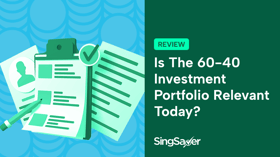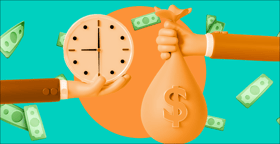Are you trying to achieve financial independence, or are you aiming for financial freedom? Here are the differences between these two seemingly similar terms.
Often used interchangeably, financial independence and financial freedom can sometimes mean the same thing to different people. However, there is a small but important difference between the two.
Here’s what financial independence and financial freedom are about, and how you can achieve these aspirations.
What is financial independence
Financial independence is the more common term that people refer to when thinking about financial goals, particularly because it forms the bedrock of the aspirational FIRE (financial independence, retire early) movement.
Financial independence refers to having enough income in order to pay for your living expenses for the rest of your life, without having to be employed. This means that if your expenses total S$4,000 a month, you would require S$48,000 in passive income a year in order to be financially independent.
So the natural question is, without working, where will this income come from? This will be ‘funded’ by your passive income stream, be it from dividend payouts, rental income or other sources. We’ll touch on creating a passive income stream later on in the article.
When you’ve achieved financial independence, you’re able to work because you want to, not because you need to. This allows you to work on your own terms and for reasons besides earning an income.
What is financial freedom
While many look to achieve financial independence, financial freedom is the next level of being financially-free.
Financial independence covers the lifestyle that you are living today. Having financial freedom means having sufficient passive income to cover a lifestyle that could be different from your lifestyle today, such as one that is more indulgent and hence more costly. This could mean taking more holidays around the world, having more dinners at upscale restaurants, or flying business class just because you can.
This means that even though your lifestyle today might require S$4,000 a month, in order to truly enjoy financial freedom, you’d have to buffer for an even larger amount in passive income.
Ready to level up? Find out how you can make your money work harder and smarter for you. Enjoy your own dedicated relationship manager and privileged access to a whole suite of preferential rates with Priority Banking. Compare your options.
Financial Independence vs Freedom: Which one matters more to you?
Reaching financial independence is like setting an Olympic Record, while achieving financial freedom is like setting a World Record — an Olympic Record is laudable, and a World Record is even better.
If you’re just starting out on your financial journey, perhaps financial independence would be the ideal goal to first aim for, since it is a mid-way point on the road to financial freedom. The truth is, financial independence is already a massive challenge that not everyone can achieve in their lifetime.
Even as you strive for financial independence, financial freedom could still be the ultimate end-goal that only starts to appear as financial independence becomes more of a reality.
If you’re someone who’s approaching financial independence or financial freedom, you could make the most of your assets by opening a priority banking account. Such an account typically requires a deposit of S$200,000 or more, and will unlock exclusive perks, such as having a personalised relationship manager to help you grow your wealth, or even luxury lifestyle benefits.
How do you get there?
Be it financial independence or financial freedom, you’ll have to build a portfolio that provides you with passive income in order to be financially-free.
Passive income sources include:
- Dividend income from stocks: Receive payouts from stocks that regularly reward investors with dividends, such as banks, real estate investment trusts or other high dividend-yielding stocks or exchange traded funds
- Earning rental income: If you’re a property owner, you can rent out a spare room, or even rent out any additional properties you own.
- Coupon payouts from fixed income investments: Invest in low-risk bonds that provide regular coupon payouts for the duration of the bond.
- Generating passive income with your robo-advisor or investment fund: Some robo-advisors offer income-generating portfolios, while some funds are focused on providing high yields.
Finally, do keep in mind that to achieve a level of passive income that is sufficient to more than cover your living expenses, you’ll have to possess a sizable portfolio.
For example, to get S$60,000 in passive income each year based on a 5% dividend yield, you’ll require a portfolio of S$1.2 million dollars — an amount that would take an average Singaporean decades to achieve. Hence, it’s best to start growing your wealth as early as you can.
Read these next:
How To Build The Best Passive Income Portfolio For Your Future Self
Uniquely Singaporean Things We Do To Accumulate Wealth
Guide To Real Estate Investment Trusts (REITs), And Whether You’re Ready For It
DBS, OCBC or UOB: Which Bank Gives You The Greatest Dividend Yield?
What Are Fixed Income Investments, And How They Fit Into Your Portfolio
Similar articles
Do You Have A Passive Income Strategy?
8 Sneaky Signs That Lifestyle Inflation Is Delaying Your Financial Freedom
Being Rich vs. Being Wealthy: What’s The Difference?
6 Signs of Financial Stability in Singapore
5 Singaporean Women Share How They Achieved Financial Independence
The Best Investment Strategies to Apply At Each Decade of Your Life
The Fundamentals of Financial Readiness
Is It Possible To Attain Financial Freedom Without Investing?











